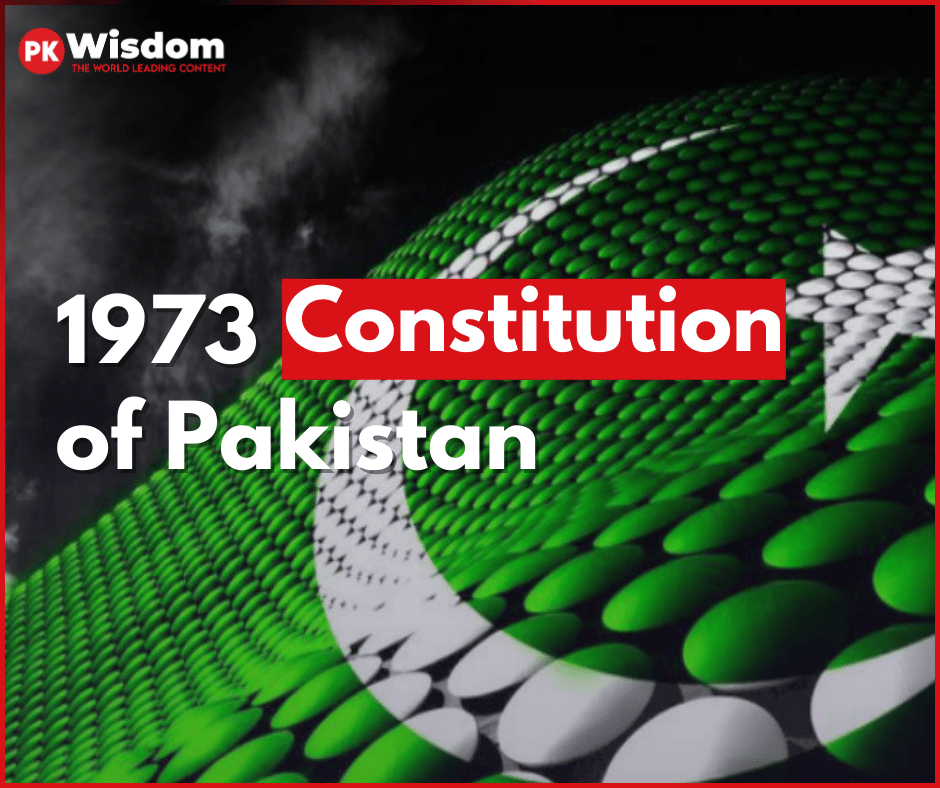1973 Constitution of Pakistan the Islamic Republic of Pakistan, adopted in 1973, serves as the supreme law of country, providing a framework for governance, protection of fundamental rights, and distribution of powers among various institutions. It reflects the aspirations and collective will of the people of Pakistan, seeking to establish a democratic, Islamic, and egalitarian society.
1973 Constitution of Pakistan recognizes Pakistan as an independent and sovereign state, based on the principles of democracy, freedom, equality, tolerance, and social justice. It upholds ideals of Islam as a guiding force in the governance and legislation of the nation while safeguarding rights and liberties of all citizens, irrespective of their religion, caste, creed, or gender.
Introduction of 1973 Constitution of Pakistan :
On April 7, 1972, Pakistan’s national assembly appointed a committee to draft a permanent constitution. On February 2, 1973, this bill was presented and accepted into Assembly, finally passed on 10 April 1973, and come into force on 14 August 1973. The purpose of the 1973 Constitution of Pakistan is to guide Pakistan’s laws, political culture, and system. This section 1973 Constitution of Pakistan. The first Article declares Pakistan to be a Federal Republic known as the Islamic Republic of Pakistan with Islam being declared its state religion and consisting of four Federating Units such as Punjab, Sindh, NWFP, and Baluchistan.
1973 Constitution of Pakistan created a free and independent judiciary.
Fundamental Rights and Principles of Policy:

1973 Constitution of Pakistan has provided some fundamental rights and freedom to Pakistanis. 1973 Constitution of Pakistan establishes 25 individual rights.
Fifteen of them relate to civil and political rights whereas the rest of the ten are social and
economic rights.
Article 8 – Right to be Treated According to Law: This Article establishes that all actions taken by the state and its authorities must comply with legal provisions, with no individual being treated in ways that contravene legal requirements in 1973 Constitution of Pakistan
Article 9 – Security of Person: This clause ensures the right to life and personal liberty for every person, which cannot be denied without due process of law.
Article 10 – Safeguards against Arrest and Detention: This article establishes safeguards to protect individuals against arbitrary arrest and detention, such as providing notice of the grounds for arrest, being afforded legal representation if needed and being produced before a magistrate within 24 hours of being taken into custody. according 1973 Constitution of Pakistan
Article 11 – Slavery, Forced Labor, and Trafficking in Persons: This Article prohibits all forms of slavery, forced labor and human trafficking in any form.
Article 12 – Retrospective Punishment Protections: It protects individuals against retrospective criminal laws that would punish for acts that did not constitute crimes at the time they occurred. No person shall be punished for actions that were lawful at the time they took place.
Article 13 – Protection Against Double Jeopardy: This provision ensures that no individual will be prosecuted or punished twice for the same offense.
Article 14 – Inviolability of Dignity of Man: This provision asserts the inviolability and dignity of every individual by protecting against torture, cruel treatment or degrading treatment.
Article 15 – Freedom of Movement and Settlement in Pakistan: This Article protects freedom of movement within Pakistan as well as freedom to reside or settle anywhere within its boundaries, and permits anyone the option to leave its jurisdiction at any time According 1973 Constitution of Pakistan
Article 16 – Freedom of Assembly: Citizens are guaranteed the right to gather peacefully and without arms for peaceful reasons within reasonable restrictions imposed in order to maintain public order and morality.
Article 17 – Association: This Article safeguards freedom of association, including the right to form associations or unions subject to reasonable restrictions in order to preserve public order, morality, or national security.
Article 18 – Freedom of Thought, Conscience, and Speech: This provision ensures the freedom of thought, conscience, and speech, permitting individuals to freely express their views while being subject to reasonable restrictions imposed by law.
Article 19 – Freedom of Speech and Expression: This article expands upon freedom of speech and expression by protecting press freedom, information freedom and imparting and receiving information freely.
Article 20 – Freedom to Profess Religion: This provision ensures religious liberty by permitting every citizen to profess, practice and propagate his or her chosen faith according to public order, morality and health considerations.
Article 21 – Protection Against Arbitrary Arrest and Detention: This Article establishes safeguards to avoid the possibility of arbitrary arrest and detention, with no person detained without being informed as to their grounds for being held.
Article 22 – Safeguards in Respect of Religion: It ensures religious minorities’ rights to establish and administer educational institutions according to their faith while providing education according to it.
Federation of 1973 Constitution of Pakistan
Provinces

Punjab: Attracting more than 25 million inhabitants, Punjab is Pakistan’s most populous and expansive province by population and land area. Lahore serves as its capital city.
Significance: Punjab is widely considered the cultural and economic core of Pakistan. With an abundant history, Lahore stands out as a city famous for its historical sites, vibrant arts scene, and cultural legacy.
Sindh: Karachi

Location: Situated in Pakistan’s southern region along the Arabian Sea coast, Sindh Province is the second largest by population size.
Significance: Sindh is known for its rich cultural heritage, ancient civilizations, and historic landmarks – Karachi being the economic and cultural heart of Pakistan being situated here.
Khyber Pakhtunkhwa (KPK):The capital is Peshawar

Location: Situated in the northwestern region of Pakistan, Khyber Pakhtunkhwa shares borders with Afghanistan.
Significance: KPK is famous for its beautiful landscapes, such as those found in Swat, Chitral and Khyber Pass regions of Pakistan. Home to various ethnic groups (particularly Pashtuns), including large Pashtun populations.
Balochistan:
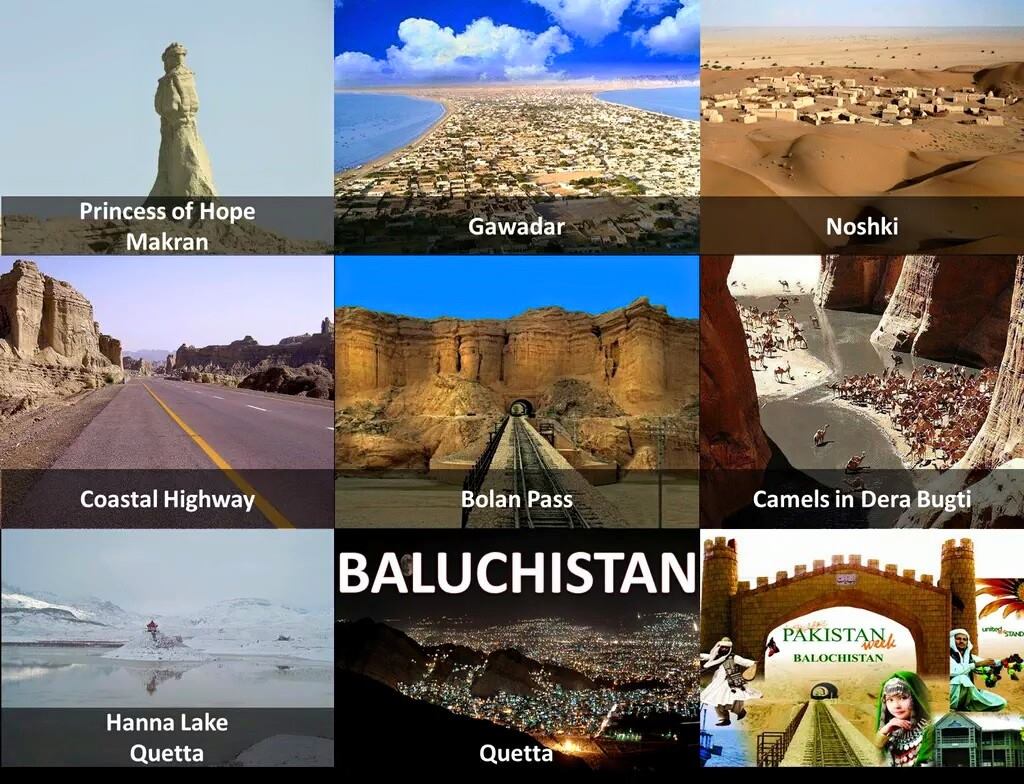
Balochistan, located in southwestern Pakistan and bordering both Iran and Afghanistan, is Pakistan’s most landmass-intensive province in terms of land area.
President
Role and powers of Pakistan’s President as the head of its federation. Additionally, it details his or her duties for maintaining unity, integrity, and sovereignty of Pakistan.1973 Constitution of Pakistan
Article 41 of the 1973 Constitution of Pakistan
Head of State: President of Pakistan serves as ceremonial head of state and represents the unity of Republic.
Executive Powers: President exercises certain executive powers as outlined in Article 41(2) of the Constitution. These powers include the appointment of the Prime Minister, Chief Justice of Pakistan, and other key positions, as well as authority to grant pardons and reprieves1973 Constitution of Pakistan.
Commander-in-Chief: President is the Commander-in-Chief of Armed Forces of Pakistan, exercising command and control over the military.
Legislative Role: President has a limited legislative role. President can summon, prorogue, and dissolve the Senate (upper house) and the National Assembly (lower house) of the Parliament.
International Relations: President represents Pakistan in international affairs. President receives foreign ambassadors and diplomatic envoys and accredits Pakistani diplomats to foreign countries.
Appointment of Governors: President appoints the Governors of the provinces on the advice of Prime Minister.
Constitutional Safeguards: President has certain constitutional safeguards to protect the democratic system and uphold the Constitution. For example, President can take necessary steps in case of a breakdown of constitutional machinery in a province.
Advisory Role: President has the authority to seek information and advice from the Prime Minister on government affairs. President also delivers addresses to the Parliament, highlighting the policies and priorities of government.
Parliament: Establishes the federal legislature, composed of both the National Assembly and Senate. It outlines their composition, functions, and powers when making laws regarding issues of federal importance.
The Federal Government: Structure and powers of federal government, such as its composition – including Prime Minister, Federal Cabinet, as well as various ministries and departments responsible for governance at a federal level.1973 Constitution of Pakistan
Provincial Governments: Formation and functioning of provincial governments. It outlines their structure and powers, such as those vested with governance at a provincial level – such as Chief Ministers, provincial cabinets and provincial departments responsible for governance at this level.
Relations Between Federation and Provinces: investigates the interrelations between federal government and provincial governments, outlining their respective legislative powers and creating a Council of Common Interests (CCI) to settle disputes as well as emphasizing provincial autonomy and resource-sharing principles.1973 Constitution of Pakistan
Finances: Examines the financial aspects of federation. It details how funds are shared among federal, provincial, and National Finance Commission (NFC) levels as well as taxes and revenues being divided accordingly.1973 Constitution of Pakistan
Parliament:
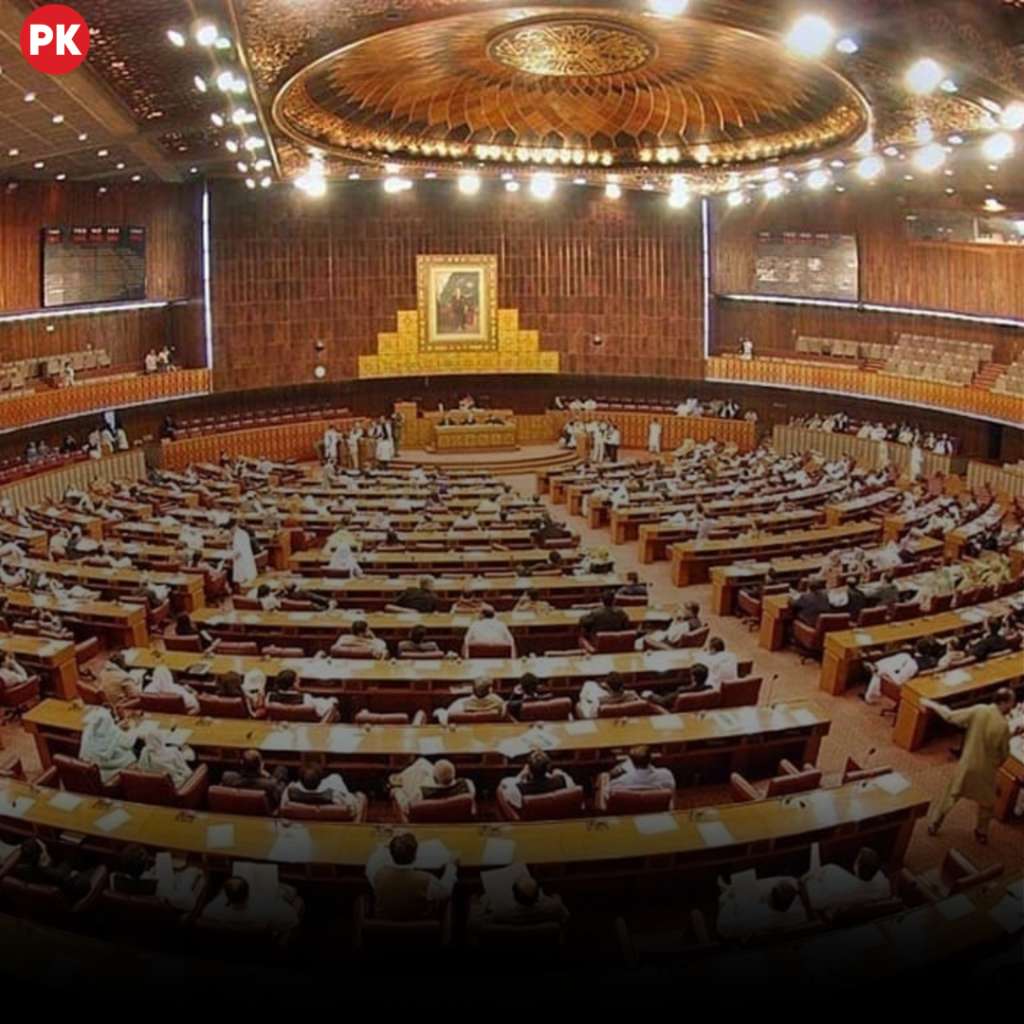
Article 50 to Article 89 of the 1973 Constitution of Pakistan provide the framework for the Parliament of Pakistan Article 51 to Article 63 of 1973 Constitution of Pakistan defines and qualifies members of the National Assembly (MNAs), elected representatives serving in Parliament’s lower house. 1973 Constitution of Pakistan
Composition: The National Assembly consists of MNAs elected by their constituents to represent them in Pakistan. A formula determined the total number of seats within it based on population proportions.
Qualifications for being an MNA:
1973 Constitution of Pakistan To become eligible to be an MNA, an individual must: a. be a citizen of Pakistan b. have reached at least 25 years of age
c. be registered as a voter within an electoral area or constituency
d. meet any additional legal qualifications set by law such as educational requirements
Election: MNAs are chosen through general elections held within their constituent constituencies, using adult suffrage as the electoral method, so all eligible voters can cast their ballots and elect their representatives.1973 Constitution of Pakistan
Term of an MNA: Unless dissolved earlier, MNA terms typically last five years before new general elections are held to elect new MNAs. At either point in their term or dissolution of the National Assembly, elections for MNAs must be conducted anew.
Representation: MNAs represent their constituents in the National Assembly, speaking up on behalf of them during parliamentary proceedings and discussions to voice any issues, grievances or aspirations they represent.1973 Constitution of Pakistan
Legislative Role 1973 Constitution of Pakistan: MNAs play an integral part in the legislative process by introducing bills, presenting motions, and engaging in debates over various topics. They possess the authority to propose legislation, amend current bills when needed, and vote on their passage into law.
Oversight and Accountability: MNAs play an invaluable role in holding government accountable through oversight. By carefully studying its policies, questioning ministers, and raising matters of public concern they play an instrumental part in making sure its actions and decisions are held to account.
Committees: MNAs play an active role in participating in parliamentary committees that examine legislation and review, inquire into government operations, conduct inquiries, oversee government functions and oversee governmental functions. MNAs contribute their time and expertise to standing, special or other committees dedicated to various aspects of governance.
Constituency Services: MNAs offer their constituents assistance and support on various matters, such as addressing grievances, providing government services efficiently, or representing their interests within government.
Speaker and Deputy Speaker 1973 Constitution of Pakistan
Article 53 of the 1973 Constitution of Pakistan outlines the roles and responsibilities of the Speaker and Deputy Speaker in the National Assembly
Speaker:
Election:
The Speaker is elected from within the National Assembly’s membership by way of voting.
The Speaker serves as Presiding Officer of the National Assembly by chairing sessions, maintaining order, and upholding rules of procedure. According 1973 Constitution of Pakistan
Authorities: The Speaker is empowered to interpret and enforce the Rules of Procedure during proceedings, making decisions regarding any points of order raised during this process.
In case of any voting tie on any matter being considered for approval, the Speaker holds a casting vote – meaning they can cast an ultimate decisive vote to break it and break ties between members.
Committees: The Speaker is responsible for appointing members to various committees of the National Assembly and determining their composition and functions.
Deputy Speakers are selected from among members of the National Assembly by vote of all of its members, then support and assist their Speaker in fulfilling his or her duties and responsibilities.
Acting Speaker: When the Speaker is absent, his or her powers and functions are exercised by the Deputy Speaker in their absence.
Casting Vote: Similar to the Speaker, they also possess a casting vote if any matter being voted upon remains tied after two votes have been cast on it.
Neutrality and Impartiality: Both the Speaker and Deputy Speaker must uphold impartiality and neutrality when serving in their roles, which does not involve affiliation to any political party during their term, to uphold the dignity and integrity of the National Assembly.
Order and Discipline: It is the Speaker and Deputy Speaker’s responsibility to maintain order and discipline during National Assembly proceedings, making sure members abide by its rules, maintain decorum during debates, and conduct themselves appropriately during discussions.
Functions of Parliament: Speaker and Deputy Speaker are vital figures in the running of the National Assembly. They preside over sessions, administer oaths to members, authenticate bills passed by the Assembly, and perform other duties necessary to the smooth running of its affairs.
The Speaker and Deputy Speaker of the National Assembly play essential roles in the smooth running of legislative processes. They uphold parliamentary decorum, provide procedural guidance, and foster an environment conducive to productive debate and decision-making.
Deputy Speaker
Election of Deputy Speaker: The Deputy Speaker is elected from amongst members of the National Assembly and supports their duties and responsibilities in performing them effectively.
Acting Speaker: When absent, the Deputy Speaker assumes the duties and functions of acting Speaker and exercises their powers and functions as Acting Speaker.1973 Constitution of Pakistan
Casting Vote: Like their Speaker counterpart, the Deputy Speaker also has a casting vote if any issue being voted upon is tied.
Neutrality and Impartiality: Both the Speaker and Deputy Speaker must maintain impartiality and neutrality in their role, adhering to no political party affiliation during their term in office and upholding the dignity and integrity of the National Assembly.1973 Constitution of Pakistan
Order and Discipline: It is the responsibility of both Speaker and Deputy Speaker to maintain order and discipline during proceedings of the National Assembly, making sure members abide by its rules, observe decorum, and conduct debates in an orderly manner.
Parliamentary Functions: The Speaker and Deputy Speaker play an instrumental role in the smooth running of Parliament. They preside over sessions, administer oaths to members, authenticate bills passed by the Assembly, as well as performing other duties necessary for its smooth functioning.1973 Constitution of Pakistan
The Speaker and Deputy Speaker of the National Assembly serve as crucial figures to ensure proper operation of legislative process. They ensure parliamentary decorum, provide guidance on procedural matters, and foster an environment conducive to productive debate and decision-making.
Role in Constitutional Amendments
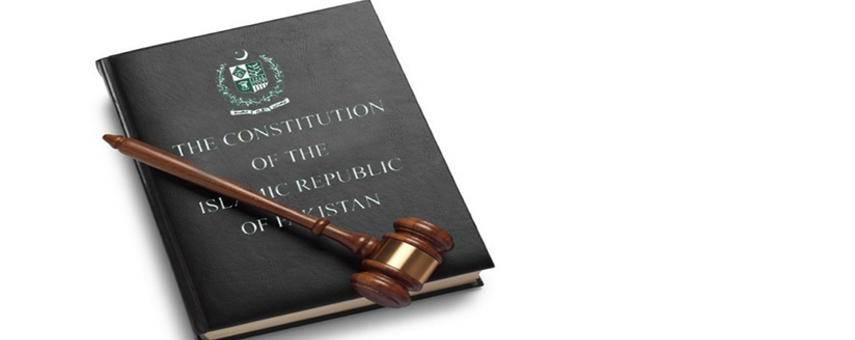
Article 238 of 1973 Constitution of Pakistan details the role of Constitutional Amendments in this country.
Amendment Procedure: 1973 Constitution of Pakistan can be altered through a process outlined in Article 238. An amendment proposal can be brought before either chamber of Parliament – National Assembly or Senate.
Passage by Both Houses: In order to begin this process, proposed amendments must first be passed by both houses of parliament. A bill introducing and debating amendments must then be introduced and debated and passed separately in each chamber based on simple majority vote from its membership present and voting on that amendment bill.
Joint Sitting: If a proposed amendment passes one house but is rejected or ignored by another, or there is a disagreement between them, a joint sitting of both houses can be called. Presided over by the Speaker of the National Assembly, this meeting can decide whether or not an amendment passes or fails based on majority voting during this joint sitting session. If it passes with this tally of approvals from present members and voting during it then its passage becomes finalized.
Presidential Assent: Once an amendment is passed by both houses or at a joint sitting, it is presented to the President for assent or rejection. He or she can either give it or withhold it; if assent is granted, the amendment becomes part of Pakistan’s Constitution.
Special Majority: Certain provisions of the Constitution require special majority to amend them, commonly referred to as the “Majlis-e-Shoora (Parliament).” In Article 238, special majority means an amendment must pass by two-thirds majority in both houses of Parliament.
Limitations on Amendments: Amending the Constitution has its limits; basic features of its Islamic provisions, federal structure, judicial independence and democratic system cannot be amended without losing their essence.
1973 Constitution of Pakistan can be amended, its process has been designed to ensure amendments are carefully considered and that their effects do not compromise its fundamental principles and provisions.
Emergency Provisions:

1973 Constitution of Pakistan Articles 232 through 237 have been made part of its Articles, for inclusion.
Article 232 – Emergency Proclamation:
This Article empowers the President of Pakistan to proclaim a state of emergency if he/she believes there is a grave threat to Pakistan’s security or stability due to war, external aggression or internal unrest.
Article 233 outlines its effects upon proclamation:
Once a proclamation of emergency has been issued, its provisions supersede any provisions in the Constitution which might conflict with emergency measures taken.
Article 234, “Power to Issue Ordinances:” the emergency measures taken take precedence over any conflicts with them.
Under emergency situations, the President can issue ordinances with similar force and effect as an Act of Parliament; such ordinances can amend or suspend any provision of the Constitution.
Article 235: Emergency Provisions of the Constitution:
This Article specifies that, during an emergency situation, provisions in the Constitution relating to the President, Parliament and Judiciary shall be subordinate to emergency provisions outlined within it. 1973 Constitution of Pakistan
Article 236 – Duration of Proclamation
Proclamations of Emergency by President
General proclamations issued by the President shall initially remain in force for 30 days; however, within 40 days after its issuance both houses of Parliament must approve its validity (Article 237: Approval of Proclamation:
Proclamations Approval Process: Article 237)
Proclaiming emergency requires approval from both houses of Parliament. Once approved by a majority vote in each house, the proclamation remains in force for six months, although extensions can be granted with Parliament approval for additional periods of six months each time.
These provisions provide the legal basis for declaring and operating an emergency in Pakistan. They grant President the authority to address threats to national security or stability, suspend certain constitutional provisions, issue ordinances and proclamations an emergency state proclamation – but this action remains subject to both parliamentary and judicial approval to ensure adequate checks on executive power.1973 Constitution of Pakistan.
What is the 1973 Constitution of Pakistan?
Who drafted the 1973 Constitution?
How has the 1973 Constitution been amended over the years?
Judiciary of Pakistan
Articles 175-201 of 1973 Constitution of Pakistan that pertain to its judiciary:
Article 175: Court Establishment and Jurisdiction.
This article details Pakistan’s legal system, comprising of its Supreme Court, High Courts and subordinate courts. It details their respective jurisdictions as well as authority for hearing and deciding cases within them.1973 Constitution of Pakistan more detail give you …
Article 176: Appointment of Judges to the Supreme Court:
This article sets forth the procedures and criteria for selecting judges to Pakistan’s Supreme Court. According to this section, the President appoints the Chief Justice directly, while other judges are selected with consultation from him or her.
Article 177: Appointment of Chief Justice of Pakistan.
Article 177 provides that the President appoints the Chief Justice of Pakistan after consulting with them and the Governors of all provinces concerned.
Article 178 details how judges of High Courts are appointed.
This article covers the process for selecting judges to the Pakistan High Courts. According to this law, President of Pakistan appoints Chief Justices while other judges are appointed after consulting with Chief Justices.1973 Constitution of Pakistan read previse constitution
Article 179: Oath of Judges provides more details.
Article 179 mandates that judges of both the Supreme Court and High Courts take an oath pledging their commitment to uphold, defend and preserve the Constitution before taking their positions.
Article 180: Tenure of Office for Judges they also swear an additional oath promising their support of it during their term in office.
This article details the judicial tenure in Pakistan, where judges from both the Supreme Court and High Courts hold office until reaching 65 years of age.
Chief Justices see: Article 181.
Article 181 provides that, should either the Chief Justice of Pakistan or a High Court become vacant, or cannot fulfill their responsibilities, then their most senior judge in that court shall serve as Chief Justice until their successor can assume office.
Article 182 details how judges shall be compensated financially for their services rendered.
This Article addresses the remuneration and privileges of judges. It ensures they receive an appropriate salary as well as benefits that allow them to remain impartial while remaining independent and impartial. 1973 Constitution of Pakistan Go to province page
Article 183 of the Code of Conduct for Judges provides further details.
Article 183 provides for the creation of a code of conduct for judges that ensures they uphold high ethical standards while conducting themselves with integrity and impartiality.
Article 184 details Original Jurisdiction of Supreme Court as an authority within which to exercise original jurisdiction over cases submitted for trial by their peers.
This Article grants the Supreme Court exclusive jurisdiction in matters of public importance involving questions of law. Individuals can now directly approach it for protection of fundamental rights.
Article 190: Contempt of Court:
Article 190 establishes the power of both the Supreme and High Courts to punish individuals found to be violating contempt of court laws by taking appropriate actions against those who obstruct or interfere with justice administration processes.1973 Constitution of Pakistan
Elections
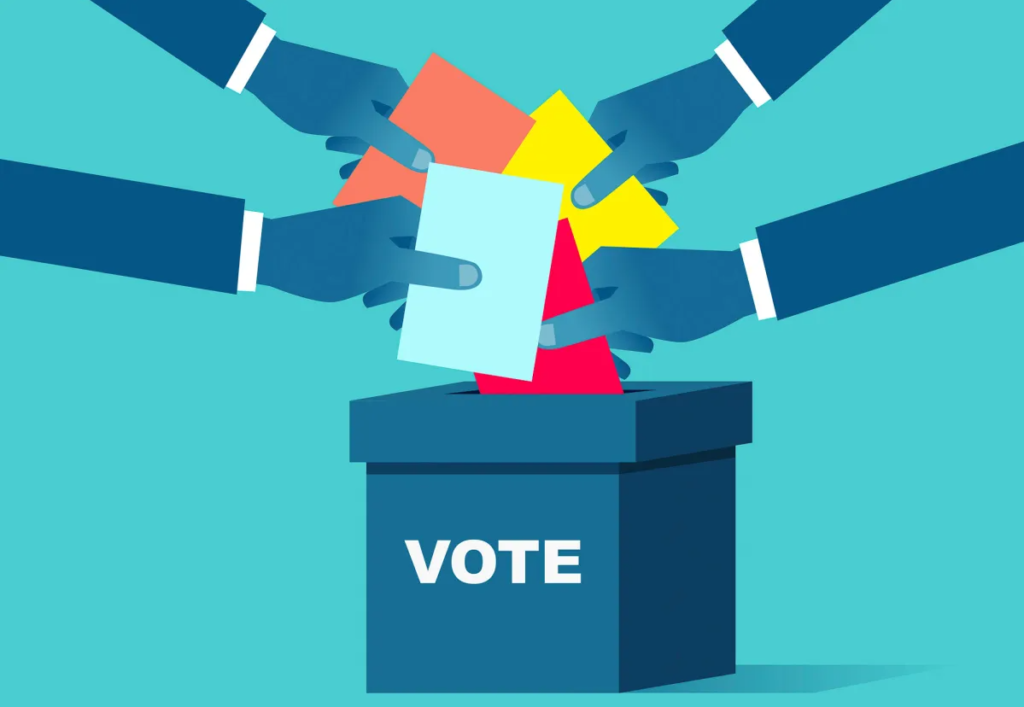
According to 1973 Constitution of Pakistan, elections are regulated by several articles which guarantee democratic processes and the fair and transparent conduct of elections.
Article 218: Election Commission of Singapore.
Article 218 establishes the Election Commission of Pakistan (ECP) as an independent and autonomous body responsible for organizing, conducting, and supervising elections across Pakistan. Their objective is to guarantee free, fair, and impartial polling systems across the nation.
Article 219 outlines the composition of an Election Commission:
This article details the structure and membership of Pakistan’s Election Commission, consisting of a Chief Election Commissioner appointed by President other members appointed by him, with consultation among members from Prime Minister and Leader of Opposition in National Assembly as to who shall appoint the CEC. 1973 Constitution of Pakistan
Article 220 outlines qualifications and appointment of Chief Election Commissioners and Members.
Article 220 sets forth the qualifications and process for selecting and appointing members of the Election Commission, including its Chief Election Commissioner and members. It outlines criteria to evaluate them while mandating consultation between the Prime Minister and Leader of Opposition prior to selection. 1973 Constitution of Pakistan
Article 221 of the Election Law provides for the appointment of election tribunals.
This Article authorizes the Election Commission to appoint Election Tribunals for the resolution of election disputes. These tribunals can adjudicate matters regarding elections such as validating election results and disqualification of candidates.
Article 222 – Conduct of Elections:
Article 222 provides the framework for elections. It ensures that balloting takes place via secret ballot, with every eligible citizen who does not fall within any disqualifying categories being given the chance to cast their vote. Furthermore, Article 222 guarantees the formation of political parties as well as election campaigning activities. 1973 Constitution of Pakistan
Article 224: Delimitation of Constituencies:
This Article mandates the delimitation of constituencies for elections. It requires the Election Commission to divide up the country into constituencies and determine their boundaries based on population density.
Article 225 – Mode of Elections:
Article 225 provides that elections to the National Assembly and Provincial Assemblies shall be conducted based on adult franchise voting with direct and free balloting for adults over 18. This ensures elections are carried out according to law under supervision by an Election Commission.
Article 226 – Examining Election Expenses:
This Article authorizes the Election Commission to oversee candidates’ election expenses and take appropriate actions if any exceed the limits prescribed. [Article 227 – Control of Political Parties:]
Article 227 grants the Election Commission authority to regulate and oversee political parties. This ensures they adhere to democratic principles, internal party democracy, and transparency when conducting their operations.
These provisions of 1973 Constitution of Pakistan establish the legal basis for conducting elections in Pakistan. They uphold democratic principles, ensure independence and autonomy of the Election Commission, protect voter and candidate rights, as well as providing mechanisms to resolve election disputes.
ISLAMIC PROVISIONS OF 1973 CONSTITUTION Of Pakistan
The 1973 Constitution of Pakistan includes several Islamic provisions that reflect the country’s status as an Islamic Republic
Objectives Resolution (Article 2A): Objectives Resolution, incorporated as Article 2A, lays down fundamental principles and objectives of the Constitution. It emphasizes that sovereignty belongs to Allah, and 1973 Constitution of Pakistan and laws of Pakistan shall be in conformity with the Quran and Sunnah
Islam as State Religion (Article 2):Article 2 declares Islam to be state religion of Pakistan. It states that the provisions of 1973 Constitution of Pakistan shall be interpreted and applied in a manner that is in accordance with teachings and principles of Islam.
Protecting Islamic Ideology (Article 2B):
Article 2B protects Pakistan’s Islamic ideology by mandating that the state take necessary steps to enable Muslims to live according to Islamic teachings and requirements.
President (Article 42):
Article 42 stipulates an oath for the President of Pakistan to take when taking office; this oath commits them to preserve, protect and defend both the Constitution of Pakistan as well as Islamic ideology within it.
Islam as the Basis for Legislation (Article 227):
Article 227 provides that existing laws shall be brought in line with Islam’s teachings as set out by Qur’an and Sunnah, and no law can be passed that violates their injunctions.
Islamic Education (Article 31):
Article 31 requires the state to provide Islamic education, with adequate facilities available for teaching the Quran and Islamiyat.
Article 230 establishes the Council of Islamic Ideology:
Article 230 establishes the Council of Islamic Ideology, which serves to advise the government in matters related to Islam and Islamic law. Furthermore, this body reviews existing legislation for ways in which it could better adhere to Islamic principles.
Amendments 1973 Constitution of Pakistan

First Amendment (1974):
This amendment provided for recognition of Ahmadis as non-Muslim minority group.
Second Amendment (1974): In essence, this declaration marked Ahmadis as non-Muslims under both constitutional law and law itself.
Third Amendment (1975):
This amendment extended the National Assembly term from five to six years.
Fourth Amendment (1975):
This amendment authorized certain acts and proceedings carried out by the Chief Martial Law Administrator as well as providing indemnification for actions taken during martial law periods. Fifth Amendment (1976): Cette amendment established an inequity clause and provided indemnification against actions taken during this time.
Sixth Amendment (1976):
This amendment established qualification and disqualification criteria for members of Parliament. Sixth Amendment (1976): This amendment established the Federal Shariat Court, an institution charged with investigating matters related to Islamic law and providing decisions accordingly. Seventh Amendment (1977): ***
Eighth Amendment (1985): With this amendment, Presidents could issue laws regarding political parties and elections during times of emergency. Forth Amendment (1985): Expanded presidential powers included dissolving National Assembly and dismissing Prime Minister. Finally, Ninth Amendment (1985) also increased President powers.
This amendment altered qualification and disqualification criteria for members of Parliament.
Tenth Amendment (1987): With this change came an increase in National Assembly and Provincial Assemblies seats.
Eleventh Amendment (1987): An eleventh amendment introduced changes to qualification and disqualification criteria for Members of Parliament.
Twelfth Amendment (1987): With this amendment came the establishment of the Shariat Appellate Bench of the Supreme Court and introduced changes to the selection procedure of judges of both Supreme and High Courts. Thirteenth Amendment (1997):
Fourteenth Amendment (1997:) This amendment provided for the appointment of both Chairman and Deputy Chairman of the Senate.
The Fourteenth Amendment limited President George Bush’s powers that had been introduced through the Eighth Amendment.
Fifteenth Amendment (1998:
This amendment made changes to the qualification and disqualification criteria for members of Parliament. With its
16th Amendment (1999), there were significant modifications made.
The Sixteenth Amendment made changes to the process for selecting and appointing judges of both the Supreme Court and High Courts, as well as how these appointments could be reviewed or cancelled.
Seventeenth Amendment (2003):
This amendment brought several significant changes, such as providing immunity to the President and creating the National Security Council.
Eighteenth Amendment (2010):
The Eighteenth Amendment introduced significant reforms to the Constitution, expanding provincial autonomy and strengthening democracy. Nineteenth Amendment (2010):
Twentieth Amendment (2012): This amendment introduced changes to the composition and functioning of Pakistan’s Election Commission….
The Twentieth Amendment (2015) focused on electoral reforms, including modifications to delimitations of constituencies and qualification of Members of Parliament. Afterward, there were further developments including amendments for delimitation and qualifications of MPs.
This amendment established military courts to prosecute individuals suspected of involvement with terrorist activities or other offenses. Within it are located several clauses, one being for military courts to adjudicate such individuals. 20-Second Amendment (2016):
Twenty-Second Amendment (1997): Changes were made to the appointment procedure of Chief Election Commissioners and members of Election Commissions.
Twenty-Third Amendment (2017):
Twenty-Fourth Amendment (2017): To create military courts to try individuals involved in terrorism.
The Twenty-Fourth Amendment sought to streamline the process for selecting superior court judges.
Miscellaneous 1973 Constitution of Pakistan
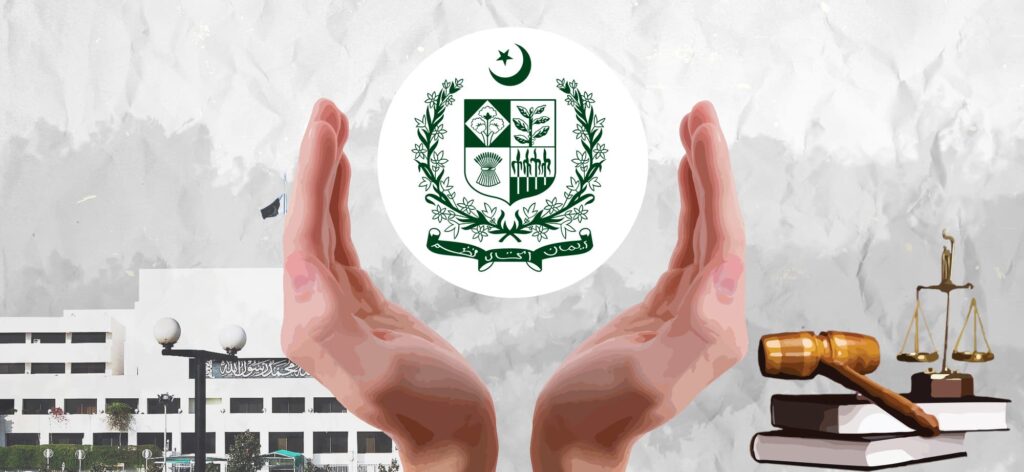
Official Language (Article 251):Article 251 designates Urdu as a national language of Pakistan. it also recognizes importance of provincial languages and encourages their development and use.
National Flag (Article 25A):Article 25A specifies design of the national flag of Pakistan, which consists of dark green background with a white vertical stripe on left side and a white crescent and star on the stripe.
National Anthem (Article 41):Article 41 sets forth composition of the national anthem of Pakistan, written by Hafeez Jalandhari, and designates it as official anthem of country.
Protection of Women and Minorities (Article 36):Article 36 provides for protection and empowerment of women and rights of minorities. It prohibits discrimination on the basis of sex and ensures safeguarding of the rights and interests of religious, ethnic, and linguistic minorities.
Local Government System (Articles 32-140A):1973 Constitution of Pakistan outlines provisions for establishment and functioning of local government systems in Pakistan. It emphasizes the devolution of political, administrative, and financial powers to local level to promote participatory governance and grassroots development.
Public Service Commissions (Articles 242-243):Articles 242 and 243 deal with establishment and functioning of Public Service Commissions at federal and provincial levels. These commissions are responsible for the recruitment and appointment of civil servants based on merit and efficiency.
National Finance Commission (Article 160):Article 160 establishes National Finance Commission (NFC) to distribute financial resources between federal and provincial governments. NFC determines the share of each province in the federal resources to ensure equitable distribution and fiscal autonomy.
Freedom of Information (Article 19A):Article 19A, inserted through 18th Amendment, guarantees the right to access information held by public bodies. It aims to promote transparency, accountability, and good governance.


